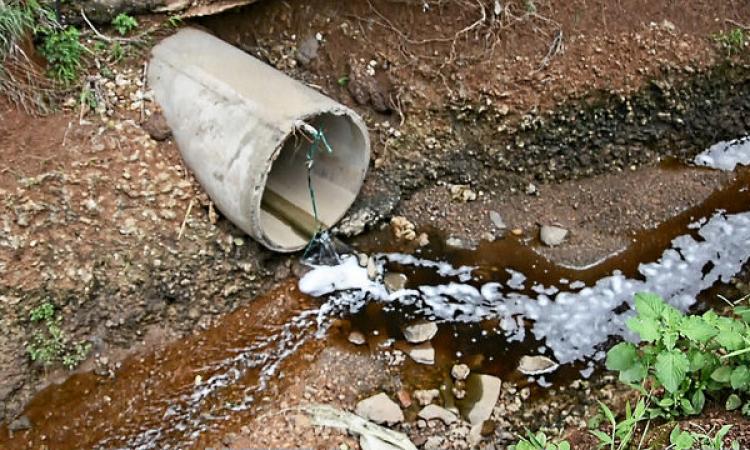
A new eco-friendly method could soon be available to address pollution due to azo dyes in wastewater from textile units.
Researchers at the Goa-based National Institute of Oceanography (NIO) have identified a bacterium that could be used to degrade the dyes. In a recent study published in the journal Current Science, they have reported that a bacterium called Yangia pacifica is able to decolourise Amido black and Congo red azo dyes by over 96 percent in seven days. The bacterium was derived from a marine sponge called Cinachyrella cavernosa.
Azo dyes are widely used in the textile industry and the effluent from textile units is found to contain a high concentration of them, sometimes up to 300 mg per litre. These dyes are highly toxic and need special efforts to degrade them. In recent years, efforts have been made to develop remediation strategies that are particularly based on biological agents instead of chemicals. Studies had so far focused on individual bacterium as also consortia of microorganisms from soil, decomposed plant parts and industrial effluents.
Microbes associated with marine sponges are known to produce potent bioactive compounds but they have not been explored for dealing with azo dyes. The present study fills that gap.
The NIO scientists collected the sponge from inter-tidal rocks at Anjuna beach and on an investigation, they found that the colony of microbes associated with it had a potential to degrade azo dyes. In particular, one strain Yangia pacifica showed higher tolerance and better decolourisation potential. It could achieve over 96 percent decolourisation within seven days.
“The percentage of decolourisation by Y. pacifica in our study was comparatively higher than that reported for E. coli and Pseudomonas sp. under microaerophilic condition within five days. Azo bonds are toxic and carcinogenic and are difficult to decolourise by traditional non-bio agents because of the high cost involved and disposal problems for treating the dye wastewater,” the lead investigator of the study Maria-Judith Gonsalves told India Science Wire.
“It is clear that Y. pacifica is a promising candidate for application either independently or in a consortium for decolourisation of the textile effluents,” feel the researchers. The research team included N.S. Subina and Shanta Nair. (India Science Wire)